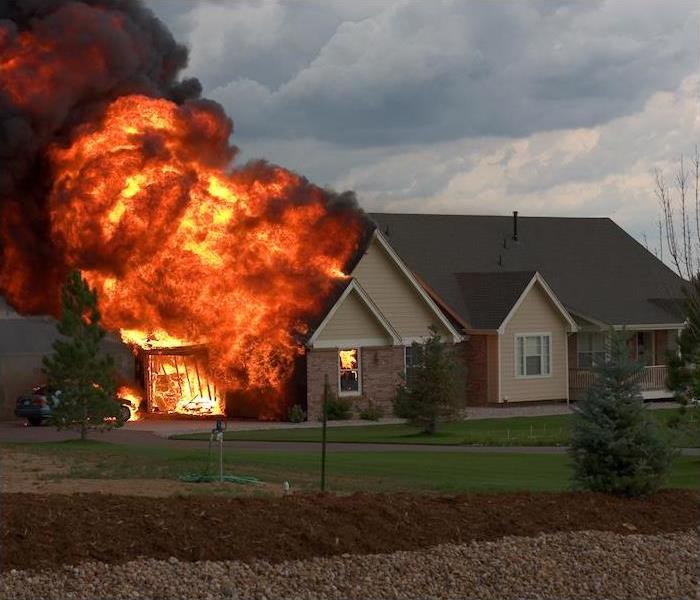The Startling Facts About Residential Fires
8/6/2019 (Permalink)
Fires are a devastating occurrence and one that happens more than most people might think. Once a flame begins to spread, it can quickly envelop an entire residential building and put everyone in harm’s way.
While there is no sure way to guarantee a house fire will never happen, reducing fire hazards around the home will provide essential peace of mind.
In the time it has taken you to read to this point, a fire has likely occurred. That may seem unlikely, but the National Fire Protection Agency estimates that a fire happens every 24 seconds.
In residential buildings, over half of the fires reported are cooking-related. Though other fire causes are not nearly as common, they can be just as dangerous.
Because flames can so quickly get out of hand, the best fire safety strategy is to stop them before they start. By understanding things that often cause accidental fires around the home, you can prevent fires from ever beginning:
Malfunctioning smoke alarm. A smoke alarm is the best defense against a fire, so making sure yours are operational is key. A test should be performed every month to check the battery life.
Lint tray overflow. Dryers produce a lot of heat, which is great for your clothes but not so ideal for fire risks. Lint trays should be cleaned out after every load to prevent accidental combustion.
Unguarded open flames. While many use open flames on a daily basis with no repercussions, it is advised to never leave a flame unattended.
Wear in cables. Electrical cables and extension cords can become worn and spark. Check cables often for fraying and always replace at the first sign of wear.
Improperly stored chemicals. Car fluids, household cleaners and other everyday objects can contain flammable chemicals that should be treated with caution to avoid combustion. Always check the label for storage instructions if you are unsure.
If your home has suffered damage from a house fire, give us a call. We are certified in fire and soot remediation, and here to help 24⁄7.





 24/7 Emergency Service
24/7 Emergency Service
